Nos Robaron La Tierra / They Stole the Land From Us
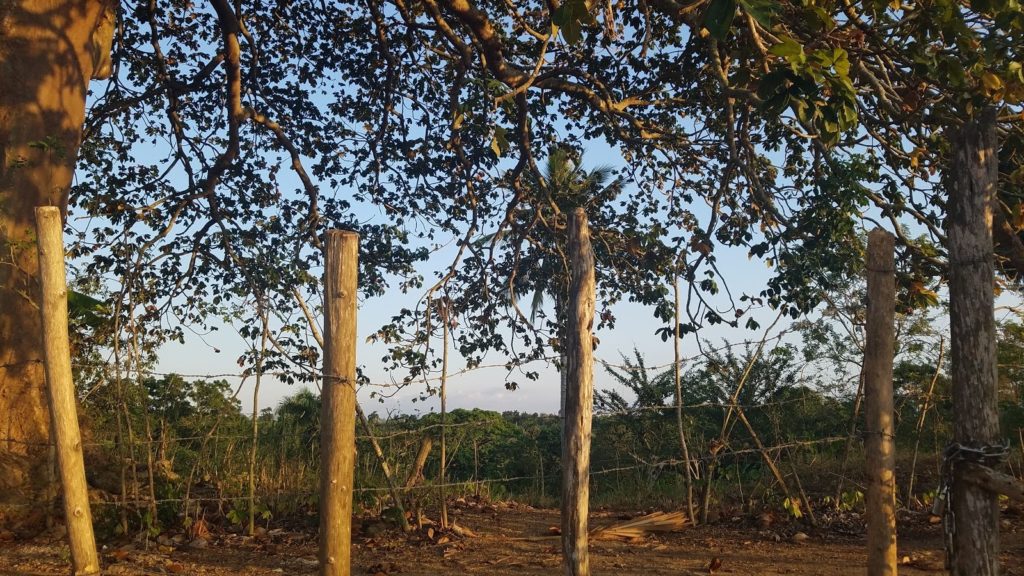
by Vanessa García Polanco What do you want the future of your land to be? “Nos robaron la tierra,” they stole the land from us, exclaimed my great aunt Tia Amantina with sadness. She was the first of my great aunts and uncles to be forcefully evicted and to migrate to the United States. In […]
Let’s talk about the land!

by Vanessa García Polanco When you’re driving in rural America and pass a farm, do you ever wonder how it came to be or do you just assume it has been there for generations and will be there for generations? I think that is the biggest distinction between some of our rural and urban farms. […]
Going Beyond Diversity and Inclusion in Food, Agriculture, and Natural Resources

by Vanessa García Polanco In many of my roles as a food, agriculture, and natural resources practitioner, student, and researcher, I have noticed my uniqueness in the spaces to which I was aiming to belong: nonprofits, higher education research offices, federal offices, agricultural advocacy groups, food policy councils, and others. I was often the only woman […]
This Land Is Your Land
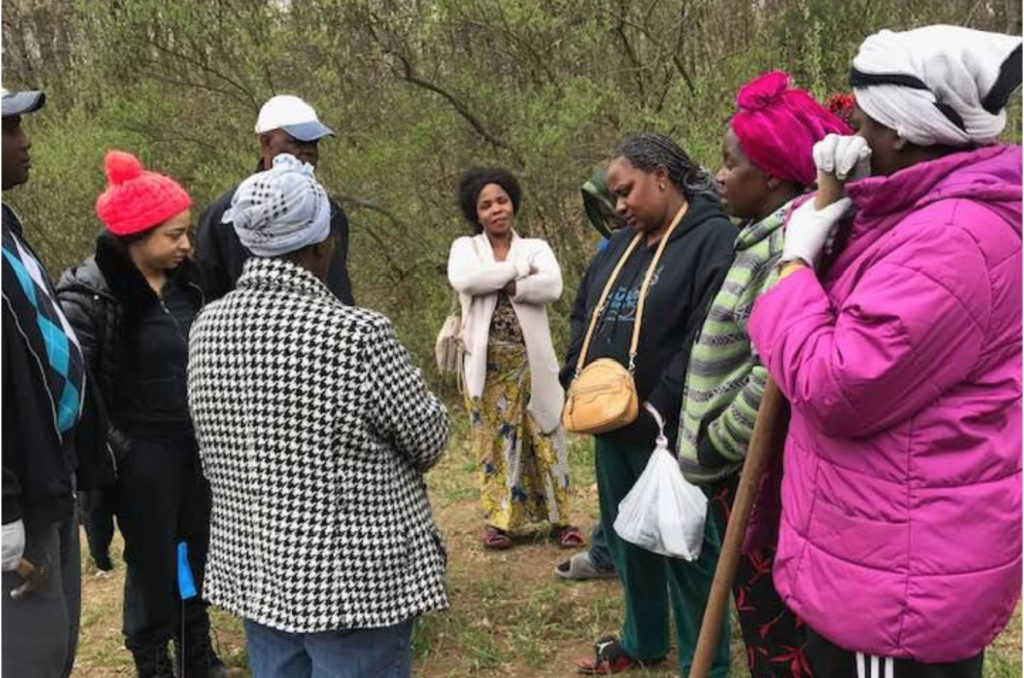
June 16th-23rd is #RefugeeWeek and June is Immigrant Heritage Month #CelebrateImmigrants by Vanessa García Polanco Imagine arriving in a new country as a refugee after spending years in a refugee camp in another country as an asylum seeker and then being given three months to achieve “self-sufficiency” in your new host country. Your hands and […]
Los Herederos de la Tierra, The Heirs of The Land
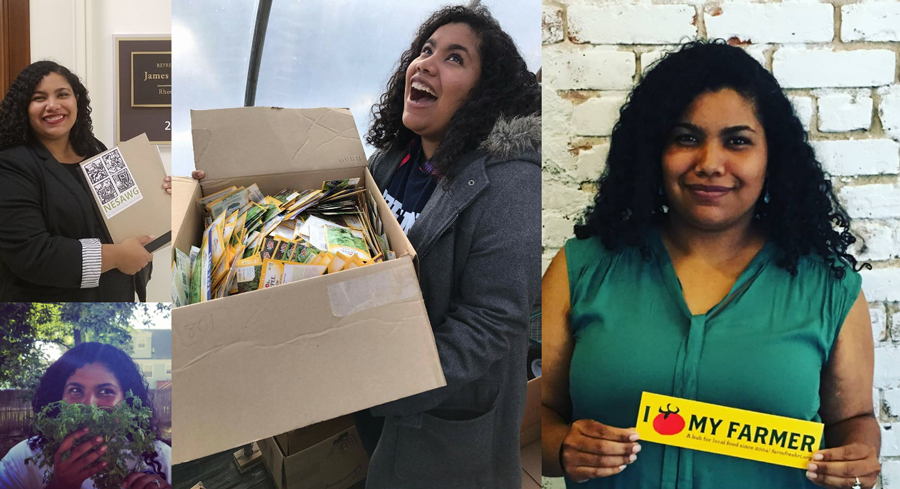
By Vanessa García Polanco “The land should always be there, you should always own some. Money goes away and you can spend it really fast. I don’t like to sell or give away things I inherited.” – Alicia Alba, my grandmother As I set foot in the lands that belong to my grandmother that she […]
Truthout: A Green New Deal Must Prioritize Regenerative Agriculture

“Agrarian Trust, a nonprofit committed to supporting land access for the next generation of farmers, is experimenting with community-controlled land commons to collectively and democratically own the land, while giving 99-year leases to regenerative farmers. This model prioritizes broader community involvement and investment in local farms, while giving farmers long-term land security and equity interests so that they can fully commit to restoring the land over many decades.”
Video: Regenerative Agriculture: What does the land want?

Our founding board member Severine von Tscharner Fleming inspires us to consider the question, “What does the land want?” in her latest talk as a Fellow with the Edmund Hillary Fellowship based in New Zealand.
FaithLands Pilot Project in North Carolina Welcomes Our New Coordinator, Josie Walker

We’re thrilled to welcome Josie Walker to our team as our Eastern North Carolina Project Coordinator for FaithLands, a coalition-led initiative that supports faith communities in making lands available for sustainable, agroecological farming, especially to those in society marginalized by virtue of class, race, gender, economic status, and other factors.
Video: Sustainable Farming & Food Sovereignty in Cuba
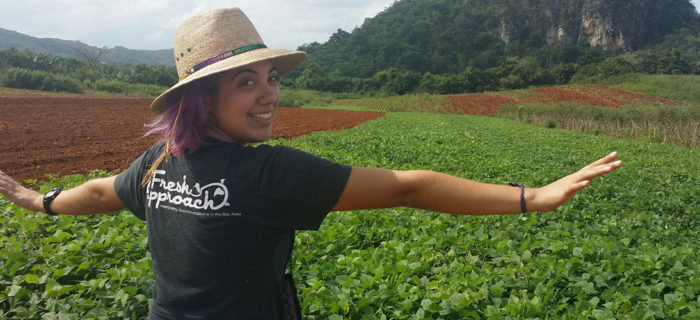
“Cuba is a great example of how organic farming could supersede conventional agriculture.” —Food First’s Madaly Alcala
New Agrarian Commons Poster: Many Communities, One Trust
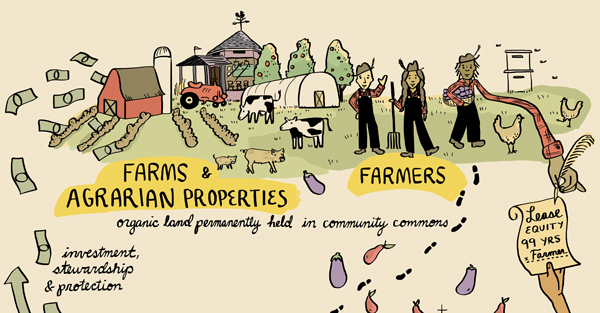
We commissioned and presented a new poster to visually explain how we’ve mapped out the structure of an agrarian commons and engaged in discussions with a number of legacy farmers who expressed interest. Check out our new Agrarian Commons poster (version 1.0) and let us know what you think!